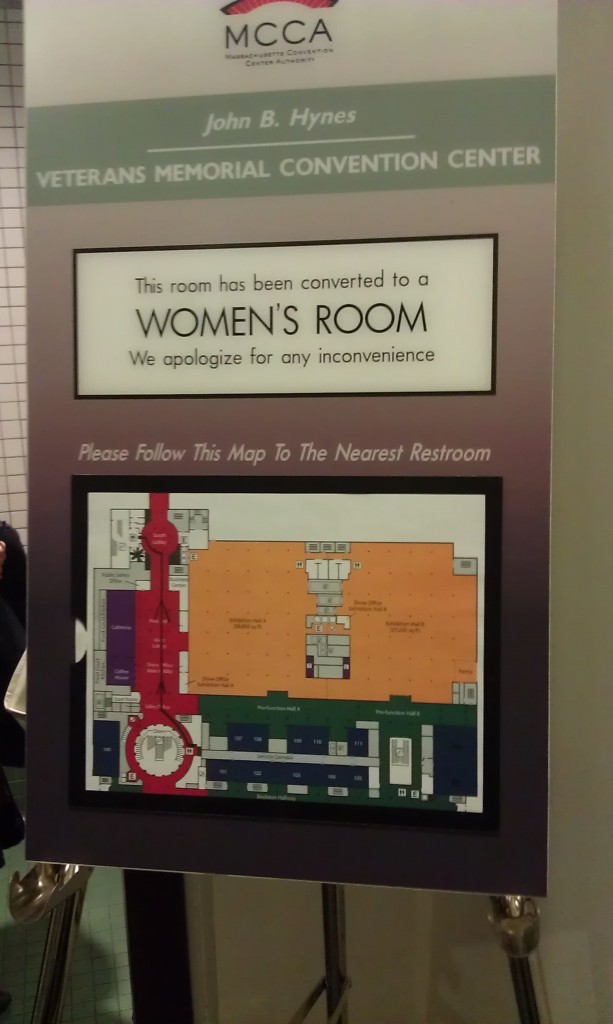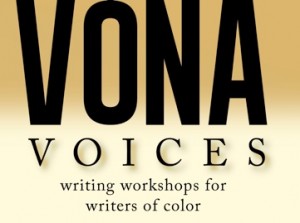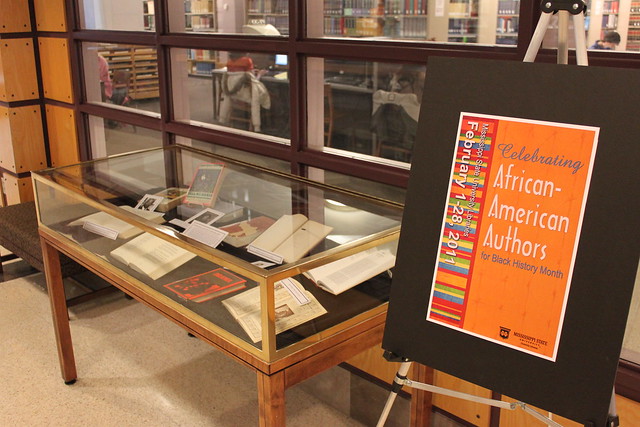***Update 6/11/2013: If writers of color need a space to gather, their books need a place to be sold, and their readers a space to discuss their work. That’s one of many reasons black bookstores are important, and the oldest one in the country is under threat of foreclosure. Sign the petition to keep them open.
About a month ago (yep, I’m waaaay behind on the thoughts I’ve been meaning to share here), a list called “American Women Novelists” appeared on Wikipedia–after women were removed from the “American Novelists” list. Hoopla ensued in response to Wikipedia’s sexism, and while writers, readers and NPR listeners debated the status of women in literature, I flashed back to the 2013 AWP conference.
As I’ve said before, sessions on gender, race and ethnicity in MFA writing programs and in the literary world were in abundance at the Association of Writers and Writing Programs annual conference in March, and as with other panels, I found this problematic. I approved of discussing pedagogic methods for workshops with students of color and think it fosters a more positive learning and teaching experience. I also thought it was good to give black writers in the United Kingdom (and new Native American writers and Chicanas writing historical fiction and immigrant slam poets) exposure at a venue that attracts thousands of writers and industry professionals. But I was also disgusted that people of color were panelists almost exclusively in sessions about people of color, rather than integrated into the whole conference.

If you have so many women at a writers conference you have to convert the men’s room into a ladies’ room, you’d think there would be more women getting published, reviewed and recognized.
And then I found another side of the conference’s segregation prism: In the sessions I attended about us, I felt a unique energy in the room, a fire for literature, for humanity and for our experience in the U.S., whether we are born here or are immigrants. Our voice is unique and our unity palpable.
A few weeks after the conference, I read this article about Essence magazine editor Constance R. White getting fired, allegedly for a clash with Time, Inc.’s editor-in-chief, who is a white woman. Constance R. White wanted the magazine to be about and for black women again. This made me ask myself, what do we, as writers, journalists, editors, agents, publishers, booksellers and readers want in literature and media–and in theater, movies, or the arts in general? Do we want full integration? Acceptance? Jobs? Ownership and control of the message? Should there be a shelf for African-American literature in every library and bookstore? Should it be a Library of Congress category?
I have no answers to these questions; when it comes to the arts, “should” is sometimes a matter of sales, and that can depend on people knowing where to find your book or to advertise your show. But when it comes to quality, we women and we people of color are not second-tier artists, nor are we un-American. Our experiences are unique and inextricably linked to the history of race and gender in this country, and that, I believe, is why I “got it” at AWP13 when I heard Vietnamese-American poets perform some lines in Vietnamese, “felt it” when I heard tributes to Lucille Clifton and made it a point to let AWP know I thought the conference was segregated.
 That also is why I decided to apply to VONA. Voices of Our National Arts Foundation is the only multi-genre workshop in the U.S. for writers of color. (Black poets have Cave Canem, but I write memoir.) I got accepted into this competitive program, and I’ll be going to Berkeley, Ca., for one week at the end of June for a memoir workshop with Staceyann Chin (ironically, a Def Poet, but also a memoirist and one-woman-show star). And …Â I need your help getting there. VONA is expensive, but according to the testimony of alumni, it’s worth every penny. I want to get there with as little debt as possible. Hey, you know investments in your writing career can take a long time to pay off! My goal is to raise at least $725, or half the tuition/room and board, with the help of loving family, friends and you: readers who support artists of color.
That also is why I decided to apply to VONA. Voices of Our National Arts Foundation is the only multi-genre workshop in the U.S. for writers of color. (Black poets have Cave Canem, but I write memoir.) I got accepted into this competitive program, and I’ll be going to Berkeley, Ca., for one week at the end of June for a memoir workshop with Staceyann Chin (ironically, a Def Poet, but also a memoirist and one-woman-show star). And …Â I need your help getting there. VONA is expensive, but according to the testimony of alumni, it’s worth every penny. I want to get there with as little debt as possible. Hey, you know investments in your writing career can take a long time to pay off! My goal is to raise at least $725, or half the tuition/room and board, with the help of loving family, friends and you: readers who support artists of color.

